Vault Markets Review
Abstract:Vault Markets, a Southern African brokerage, faces scrutiny for its regulatory status and website accessibility. Learn more about its compliance in this detailed report.
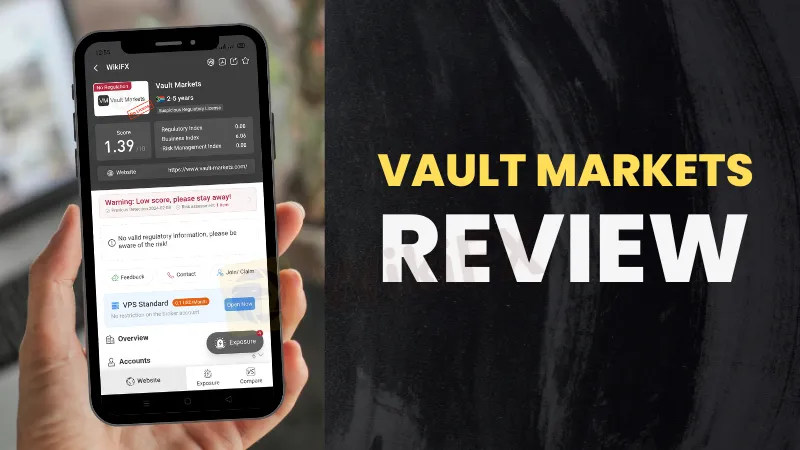
Vault Markets, a brokerage that purports to service Southern African customers, has been criticized for its regulatory framework and online accessibility. This study educates investors and traders about Vault Markets and FX brokerage regulatory compliance.
Overview of Vault Markets
Vault Markets trades currencies and commodities in South Africa, Dar es Salaam, Tanzania, and Windhoek, Namibia. These offices are located in famous neighborhoods such as Nelson Mandela Square in Sandton and SKYCITY MALL in Dar es Salaam, indicating an aim to build a reputable and accessible presence in significant financial centers in the region.
Website and Accessibility
Vault Markets' main website (vault-markets.com) is down, reports say. It immediately doubts the broker's openness and operating reliability. A functioning and easily accessible website is essential for every forex broker since it serves as the major platform for customer engagement, account administration, and the distribution of trading materials. The broker's operational integrity is called into question by the absence of website accessibility, which not only makes it difficult for prospective customers to collect information and create accounts,

Regulatory Concerns
When choosing a forex broker, regulatory status is crucial. Brokers must protect customer funds, trade ethically, and be transparent. Unfortunately, Vault Markets does not yet have any regulations. This absence of governmental control considerably raises the risk for traders and investors, who have no redress in the case of a broker's disagreements, fraudulent tactics, or financial collapse.

Regulatory authorities like the FCA in the UK, CySEC in Cyprus, and ASIC in Australia place strict standards on forex brokers to protect customer money, trading operations, and the trading environment. Brokers without regulation expose customers to many risks.
The Importance of Forex Broker Regulation
Regulation is more than a bureaucratic hurdle; it underpins confidence and security in the turbulent and competitive foreign exchange market. Regulated brokers must keep segregated client accounts, conduct regular audits, follow rigorous capital adequacy rules, and engage in compensation programs that safeguard customers' cash in the case of broker failure.
Furthermore, regulatory organizations offer a framework for dispute resolution and guarantee that brokers adhere to fair trade principles, such as transparent pricing, order execution without undue delays, and the absence of manipulative activities. For traders, selecting a registered broker means selecting a partner that appreciates transparency, ethical procedures, and customer protection.
Conclusion
Vault Markets tries to be a respected Southern African broker, but its unregulated position and website accessibility issues deter customers.
Due diligence and regulatory compliance will give traders and investors a piece of mind and assure a fair, transparent, and safe trading environment when picking a forex broker.
Visit WikiFX to access a detailed report on Vault Markets. Gain insights into the regulatory standing, user reviews, and potential risks associated with trading through this broker.

Read more
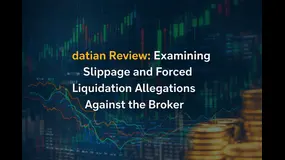
datian Review: Examining Slippage and Forced Liquidation Allegations Against the Broker
Did you face losses due to a sudden change in the trading price on the datian platform? Were your transaction records deleted by the Hong Kong-based forex broker? Did the broker liquidate your trading account multiple times despite not reaching the stage where it mandated this move? Have you experienced heavy slippage on the trading platform? Concerned by these issues, traders have complained about the broker online. We will let you know of these with attached screenshots in this datian review article. Keep reading!
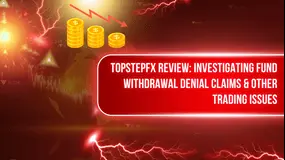
TopstepFX Review: Investigating Fund Withdrawal Denial Claims & Other Trading Issues
Did you face constant rejections of your fund withdrawal applications by TopstepFX? Have you been denied withdrawals in the name of hedging? Did you witness an account block without any clear explanation from the forex broker? There have been numerous user claims against TopstepFX regarding its withdrawals, payout delays and other issues. In the TopstepFX review article, we have investigated the top complaints against the US-based forex broker. Keep reading!
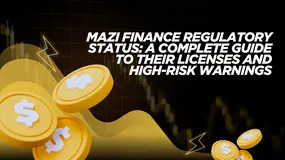
Mazi Finance Regulatory Status: A Complete Guide to Its Licenses and High-Risk Warnings
When choosing a broker, the first question is always about safety and legitimacy. Is my capital safe? For Mazi Finance, the answer is clear and worrying: Mazi Finance is an unregulated broker. While the company, MaziMatic Financial Services LTD, is registered in the offshore location of Saint Lucia, this business registration does not replace strong financial regulation from a top-level authority. Independent analysis from regulatory watchdogs shows a very low trust score, made worse by official warnings from government financial bodies and many user complaints about serious problems. This article provides a clear, fact-based analysis of the Mazi Finance regulation status. Our goal is to break down the facts and present the risks clearly, helping you make an informed decision and protect your capital.
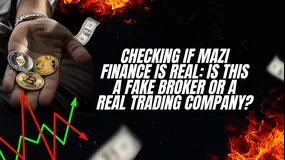
Checking if Mazi Finance is Real: Is This a Fake Broker or a Real Trading Company?
If you're wondering, "Is Mazi Finance legit?" or worried about a possible Mazi Finance scam, you are asking the right questions. These are the important first steps every trader must take to protect their capital. In a market full of chances to make money, there are just as many traps. Our goal is to give you a clear, fact-based answer. We have done a complete investigation into Mazi Finance, looking at its legal status, company structure, user experiences, and trading conditions. This is not a review based on marketing claims; it is a check for legitimacy based on facts we can prove. To be direct, our findings show that Mazi Finance operates with serious warning signs that should worry any trader. The biggest problem is its complete lack of proper regulation from any respected financial authority. This fact alone puts it in a high-risk category. This article will explain exactly what that means for you and your money.
WikiFX Broker
Latest News
CBN Bolsters Forex Liquidity: Resumes BDC Sales as Reserves Hit $47 Billion
PXBT Review: A Seychelles-Based Trap for Your Capital
KK Park 2.0? New Scam Hub Shockingly Emerges in Myanmar
FX Markets: Aussie Dollar Breaks 0.7100, Yen Rallies on Political Shifts
Anzo Capital Detailed Analysis
Pemaxx User Reputation: Looking at Real User Reviews to Check If It's Trustworthy
CFI Detailed Analysis
Beware ThinkMarkets: Forex Fraud Cases Exposed
China’s "Deposit Migration" Myth Debunked: A Gradual Shift, Not a Flood
Theos Markets Review 2026: Is this Forex Broker Legit or a Scam?
Rate Calc

